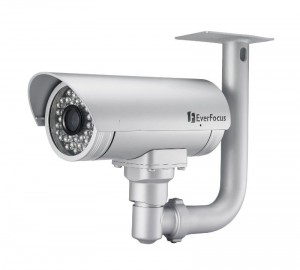When it comes to CCTV systems, the type of camera you choose can greatly affect your CCTV experience. History tells us that the analogue cameras were the most popular, this is because of their inexpensive price and their ease of use. But, lately a new camera has been hitting the market, the IP camera. They have been around for over ten years, but only recently have they become more popular, this is because as the technology matures and more competition enters the market, so the price goes down.
IP camera systems are special because of the fact that they are digital cameras, which means that they can turn audio and video into data, which allows for a greater degree of functionality. In other words, the audio and video signals which the camera uses become digitised, and once this happens these digitised packets of data can be sent to equipment like a PC for further processing. An analogue camera operates on a wave function. This means that its audio and video signals are captured and transcribed as a wave onto tape. So when you play a tape, all the tape player is doing is reading the wave which has been transcribed onto the tape. While this allows for the camera to send signals to a tape, it does not allow for signals to be sent back to the camera. This is where the benefits of a digital camera comes in. It can receive signals, and with the security cameras on board computer, it can be programmed to perform certain functions, like move to the left, or turn lights on or off.
The IP cameras not only have this benefit, they also include the advantage of having the capability to send their surveillance footage over a network, hence the name IP. This means that the camera, if configured appropriately, sends its footage to a server, which can be accessed over the internet, and the user can then view the cameras footage as long as they have an internet connection. This allows the user to access his/her surveillance footage anywhere in the world, and in some cases the user can even send commands to the IP security camera over the net, wherever they are.


